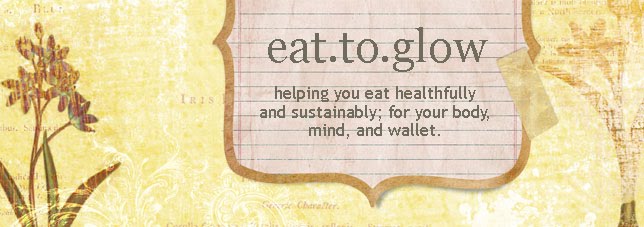While I found all facets of this book interesting and extremely informative, I obviously paid special attention to the nutrition sections. I've always been aware of the importance of diet in all aspects of health, but have always wished to learn more about its role in mental health. This book was a great start, and I'm excited to share what I've learned with you. I think this information can be helpful for everyone, not just those with diagnosable mental conditions. As my mom likes to say, "Everbody's normal 'till you get to know them" (which is actually a book title).
Important Components of a "Joyful" Diet:
1. Fat: Your brain is mostly made of fats, so making sure your diet contains adequate amounts is crucial for a well-functioning cranium. And both saturated and unsaturated fats are needed. Fatty-but-healthy foods to incorporate into your diet? Olive oil, avocados, nuts, seeds, and fish. 2. Organic and Hormone-Free: Pretty self-explanatory. Pesticides can be toxic to every part of your body and added hormones can mess with your own hormones; sounds like a recipe for disaster to me. The naturally-occurring hormones in your body can singlehandedly mess with your mood, so consuming large quantities of artificial hormones in addition can only complicate the issue.When you can, buy organic produce and hormone-free dairy products.
3. Fish: As mentioned above, there are many different fats essential for a healthy brain, but omega-3 fatty acids (specifically DHA) are especially important for a happy brain. Why? Omega-3's help keep serotonin levels up, serotonin being a major factor in relieving depression and other mood disorders. And fish is one of the richest sources of omega-3's. But the brain benefits of fish don't stop there. They're also high in protein. Eating protein-rich foods provides the amino acids necessary for producing the neurotransmitters dopamine and phenylalanine, which are essential for alertness and focus. Consequently, protein-rich diets are recommended for people with ADD and ADHD. My top 3 fish? Salmon, sardines, and tuna.
4. Complex Carbs: Carbohydrate-rich foods increase production of serotonin, which is the chemical most responsible for calmness and relaxation. Dr. Henslin recommends incorporating more of these into your diet if you deal with compulsion issues (such as OCD, eating disorders, addictions, and rage) or fear and anxiety-related disorders. A good calm-inducing menu? Anything that includes pasta, potatoes, or bread. Snack ideas include popcorn and pretzels.
5. Tryptophan: Often associated with turkey and post-Thanksgiving dinner sleepiness, tryptophan is an amino acid needed for serotonin production. Foods high in tryptophan include poultry, beef, seafood, eggs, spinach, beans, soy, and dairy.
In addition to his diet recommendations, Dr. Henslin also recommends certain supplements to help balance-out brain chemicals. I'll talk about these in my next post!
Sources: This Is Your Brain on Joy by Dr.Earl Henslin, NaturalNews.com, FAQs.org, and WHFoods.
P.S. If you or someone who care about deals with mental health issues (which is highly likely, as the NIMH reports that 26 percent of American adults suffer from a diagnosable mental disorder) I strongly urge you to find this book. While it shouldn't replace the advice of a personal physician, it's a great supplement. Check it out at your local library, buy it directly from Dr. Henslin's website, or get it used or new from Amazon. It can only help!
Dr. Henslin's book and other diet-and-mood books he recommends:












No comments:
Post a Comment